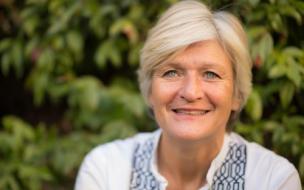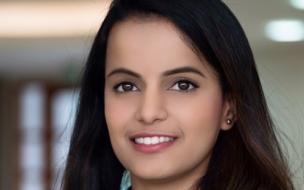After almost a decade’s experience on the creative side of marketing in Canada, she wanted to boost her business knowledge and gain global exposure. She looked at a variety of one-year MBA programs in the UK.
“When I spoke to Bath, there was a connection right away,” she says. “It was more personalized and friendly. It seemed like they were really interested in taking in students who were not your traditional MBAs.”
The Bath MBA is ranked among the top 60 full-time MBAs in the world by the Economist. Its intimate, 45-to-50 student cohort is 90% international. 43% of its students are women.
Bath MBA students have a relatively high average of eight years’ work experience. 98% of them land jobs within 6 months of graduation.
“[The Bath MBA is] so much more diverse than most North American programs,” Jordanna explains. “I’ve made friends with people in marketing around the world; in Japan, in India. It really gives you a different perspective.”
This year, Bath overhauled its MBA program to take a more customizable, experiential learning approach. The ‘Bath Spine’ runs throughout the year - alongside a core curriculum and host of electives - giving students the opportunity to apply their theoretical learnings in projects centered on leadership, personal and professional development.
Rather than a final project dissertation, Bath MBA students work on five different projects over the course of the 12-month program.
Jordanna is excited to be part of something new. “We’re really helping to develop the program,” she says. “It’s like a flexible moving machine. Rather than having a set curriculum in advance, it’s tailored to us and our interests.”
Her MBA colleague, Sarah Abbott, agrees. She picked Bath over top-ranked MBA programs in London. It was the unique student experience which really stood out.
“In some full-time MBA programs you get students who have either come straight from another masters or have only worked for a couple of years,” she says. “Here, there’s really strong experience across a massive range of backgrounds, functional roles and industries.
“It’s incredibly varied. Out of a 45-student cohort, there’s probably no more than five students from any one country. It forces you to look outside of yourself and open your eyes to different ways of thinking.”
Sarah studied History at undergrad. She’s worked at Facebook and in sales roles at IBM and Rolls-Royce, where she was account manager for the UK Ministry of Defense.
At Bath, she saw the opportunity to try something new. A third of the MBA program is dedicated to specialist ‘options’ modules on topics such as business psychology, venture capital and managing a digital enterprise.
“I like the opportunity to craft my MBA to my future,” she says. “I’m not worried about getting the big corporate jobs. I’m looking at doing something more niche in technology and digital.
“I’d like to move into a more strategic role,” she continues. “And I wouldn’t have the insight or the confidence to look to do that, without the MBA.”
After graduation, Bath MBAs have the opportunity to go straight into a three-to-six-month internship at top MBA employers like IBM, Arup and CIL Consulting.
Bath, the city, is a UNESCO World Heritage Site with a small community feel, perfectly located less than an hour and a half’s train ride from London.
Jordanna arrived in Bath in September on a Women in Business Scholarship; one of 17 different scholarships available to prospective MBAs. She’s fallen in love with the city already.
“When you get here, it’s like you can exhale and take a sigh of relief,” she laughs. “In London, there’s so many people that you can feel alone. Here, it’s a really safe, family environment.”
RECAPTHA :
87
bd
06
ba








